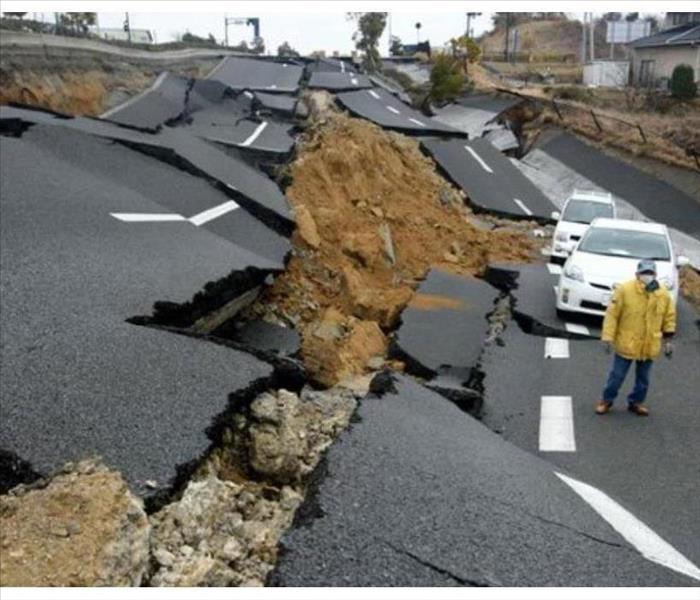Earthquake Safety Tips
8/25/2021 (Permalink)
Before an Earthquake
- Develop a family communications plan.
- Make a Ready kit for at least three days of self-sufficiency.
- Secure cabinets, bookcases and mirrors to wall studs. Avoid installing bookcases next to beds, since heavily loaded structures could fall causing significant injury or death.
- Do NOT hang pictures over the bed.
- Strap any gas or electric water heater to wall studs. A broken gas line can cause a fire, while a knocked over or ruptured tank could cause damage or scalding.
- Store hazardous or flammable materials safely. If a container of flammable liquid spills during an earthquake, any source of flame may ignite the fluid and start a fire.
- Loss of contact with the foundation is a major source of damage in many large earthquakes. Bolt house to foundation, if possible. Houses in the Southeast are built to stand upright and may not withstand shaking.
- Consider having chimneys, roofs, and walls checked for stability. Bricks from chimneys and wall facings if not secured can fall and cause significant damage or injury.
- Keep insurance policies up-to-date and stored safely. Determine if earthquake insurance is right for you.
During an Earthquake - Drop, Cover, Hold On
- Drop to the ground fast, otherwise the earthquake shaking may knock you down uncontrollably.
- Cover yourself below a strong table or desk. Falling objects and collapsing structures cause many of the injuries and deaths during an earthquake. In addition, cover your head and face to protect them from broken glass and falling objects.
- Hold onto a table or desk and be prepared to move with it. Hold your position until the shaking stops.
- Do NOT run outside or use the stairways or elevators during the shaking. The entrance ways of buildings and homes are particularly dangerous because of falling bricks and debris.
After an Earthquake
- When tremors STOP, vacate premises immediately until it is safe to return.
- Look for and eliminate fire hazards that can cause further damage.
- Follow your communications plan to locate and connect with family and loved ones.
- Check your building for cracks and structural damage.
- Take photos to record damage before you clean up or make repairs.
- Move valuables to a safe, weatherproof location.
- Review your insurance coverage and report claims promptly.
- Collect inventory records, appraisals and photographic records.
- Use licensed professionals to conduct inspections and repair your home.
- Look for ways to better prepare your home for earthquakes as you repair or rebuild.




 24/7 Emergency Service
24/7 Emergency Service
